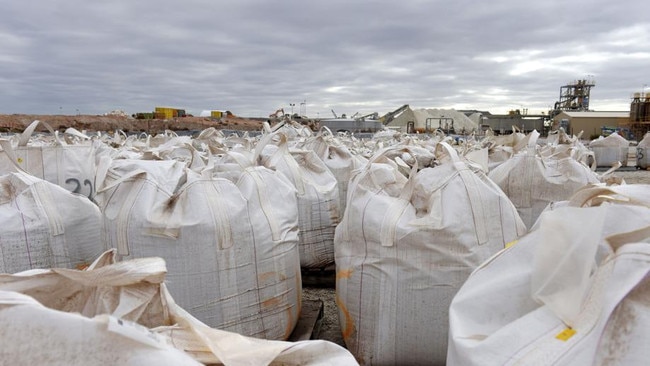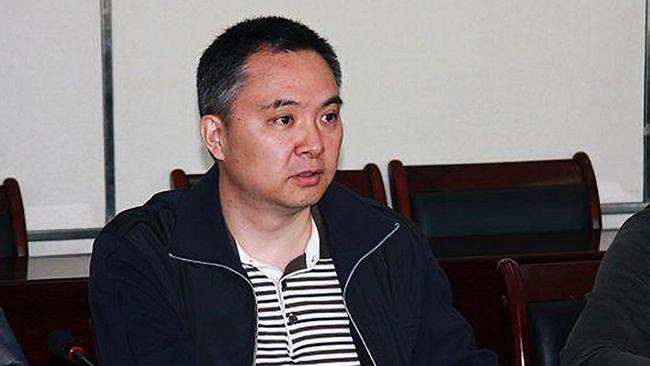Battle as WA mine funnels cheap lithium to China
The China-connected company that operates the Bald Hill mine under the eyes of the receiver has defended its decision to sell the lithium to China at 70 per cent below market prices.

As the battle for control for one of Australia’s few operating lithium mines heats up, the China-connected company that operates the Bald Hill mine under the eyes of the receiver has defended its decision to sell the lithium to China at 70 per cent below market prices.
The Australian revealed the West Australian government is looking into whether state royalties are being avoided by selling the battery-making material at rates dramatically below its Australian peers.
The company at the centre of this bitter battle is Alita Resources, which is currently under the administration of McGrathNicol. Alita operates the Bald Hill lithium mine through a subsidiary company, Lithco.
Bald Hill is set to export as much as 150,000 tonnes of lithium concentrate this year at a price of about $US300m ($454m), according to documents sighted by The Australian, despite it being worth more than $US1.1bn at current prices.
Ahead of its return to production last year, the company locked in a sales deal with a Hong Kong-registered company that requires it to sell its output and ship it directly to China at a vast discount to current market prices – delivering windfall profits for the buyer, but leaving the Australian mine running on only wafer-thin margins.
“To secure long-term offtake agreements, and in line with market standards, contracts are generally negotiated at a lower rate compared to ‘spot’ or ‘auction prices’ that do not make up the majority of the lithium trade,” a Lithco spokeswoman said in an emailed response to questions. “Long-term contracts are generally negotiated on the basis of securing the financial longevity of a project,” the spokesperson said. Some lithium rivals questioned why Alita hasn’t renegotiated this rate, given it was already below market prices last year. The lithium market has since hit record highs.
“There is enough pricing power in the market to do that,” said one source.

While most lithium miners keep the details of their own offtake contracts confidential, and the spot market for lithium concentrate is small, industry sources say most modern contracts include a reference to the final price of refined chemicals – allowing them to rise and fall in line with broader market movements.
Lithium concentrate has since surged to more than $US6000 a tonne, significantly above the $US800-$US1500 rate sighted in the Lithco contract, with other Australian miners reaping massive profits on the back of shortages of the material.
Lithium is a highly coveted metal needed to electrify the world. China stepped in early to seize control of much of this critical supply chain and build the refining capabilities needed to make batteries, leaving the West scrambling to catch up.
“Most, if not all, lithium producers currently sell their offtake to China,” said Lithco.
The connection of Lithco and parent company Alita to China may be more direct than a sales agreement, however.
Its ownership is subject to litigation, due to be heard before the WA Supreme Court on Monday.
Debt holder Austroid Resources is trying to take control of Alita through a deal agreed with McGrathNicol in 2020, but has breached a 12-month sunset clause requiring approvals from the Foreign Investment Review Board, and the Australian and Singapore stock exchanges, where the company was dual-listed before calling in the administrators.
The Supreme Court will decide on Monday whether Alita equity holder Canaccord can continue with its application to have the Deed Of Company Arrangement thrown out on the grounds that Austroid has not been able to meet the three requirements.
If that happens, it paves the way for Alita to be sold and all equity and debt holders to all be paid out, due to the unbelievable turnaround in lithium prices since 2019.
Austroid is fighting this move. It was the company that stepped in and snapped up the debt in the failed company before prices surged to current records.
Stakeholders believe Alita is now worth more than $1bn and the Australian Securities & Investments Commission has told McGrathNicol to have the company revalued before it will sign off on any deal that would see equity holders wiped out.
Including purchasing the debt and costs associated with restarting the mine, Austroid may have spent $250m on Alita, according to market insiders.
But in reality, just who owns the debt in Alita and who is buying the lithium is unclear.

Several threads lead back to the family of billionaire Chinese businessman Que Wenbin.
Mr Que, according to Forbes Magazine, made his fortune in herbal medicines and through control of Sichuan Western Resources – which Morningstar describes as a conglomerate with mining interests, along with the development and manufacture of “lithium-ion battery materials and related batteries products” and “new energy” cars. Austroid is run by his son Mike Que.
Back in 2019, China Hydrogen Energy bought the debt in Alita and made an application to the Foreign Investment Review Board to take control of the company, but withdrew in April 2020 when then treasurer Josh Frydenberg indicated he may move to block the deal.
CHEL, which is registered in the Cayman Islands, then sold the same debt to US-registered company Austroid. Mike Que was a director at both companies and is also a director at Lithco.
Despite Mike Que having been a director at CHEL and currently being a director at Lithco and Austroid, the Lithco spokesperson said it had “no” dealings with CHEL, or Que Wenbin.
“Enquiries relating to CHEL should be directed to that company,” the spokesperson said.
Tenement records held by the WA Mines Department show that CHEL retains a mortgage over the Bald Hill mining and exploration tenements. The mortgage was registered in early 2020 and remains in place.
Mike Que has now been waiting for than two years – as the lithium price boomed again – for permission from FIRB to formalise ownership of the company.
McGrathNicol refused to comment for this article but said in an update to shareholders: “Austroid has advised the Deed Administrators (McGrathNicol) that the statutory timeframe which FIRB has to respond to Austroid’s revised FIRB application has been extended to 17 March 2023.”
FIRB said it “can’t confirm that date”, which will bookend the decision by the court on whether Alinta shareholders can continue to fight for Alita to be liquidated.



